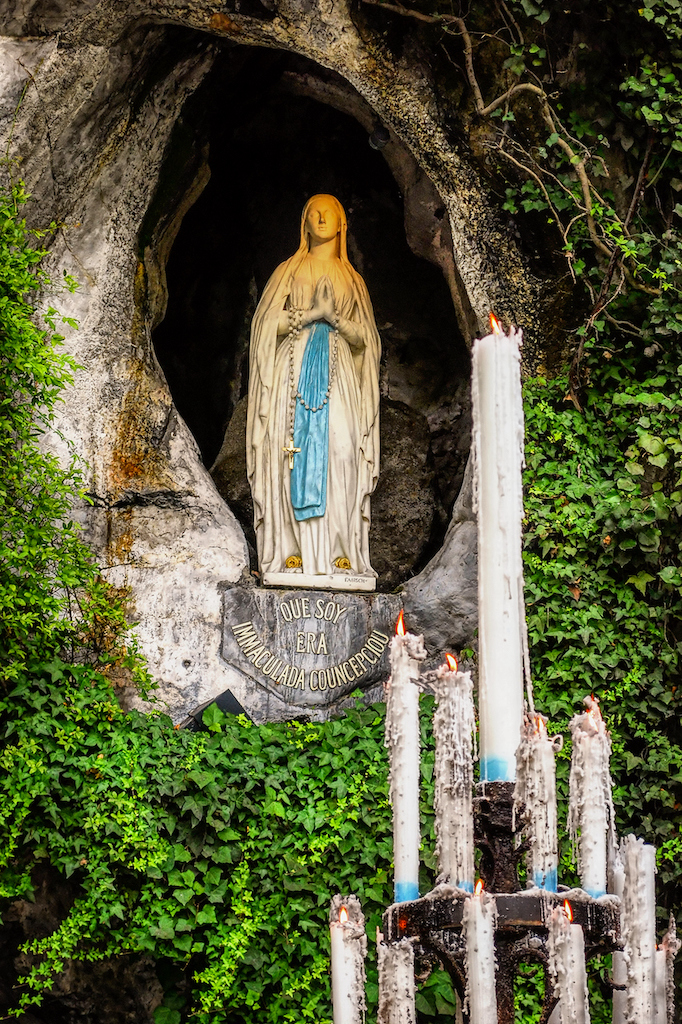This past December, “60 Minutes” included a segment about the Sanctuary of Our Lady of Lourdes in France. As one would expect, the focus was on the 71 miraculous healings that have occurred there, and which are recognized by the Church, since our Blessed Mother appeared to St. Bernadette Soubirous in 1858.
Jamie Jensen, who suffers from cerebral palsy, has visited Lourdes 18 times hoping to be cured. When the reporter, Bill Whitaker, asked him about not receiving the miracle he sought, the man noted that he had received the miracle he needed — a change of heart. “There’s a peace within myself,” he said about his experiences at Lourdes.
During the years I assisted Cardinal James A. Hickey, I went to Lourdes with him several times. I learned that everybody experiences some form of healing there, but it might not be physical nor for the intention one had at that time. For many, like Jamie Jensen, it is confidence in the presence of God and calmness when it comes to dealing with the difficulties and tragedies of life.
This winter we have been cautioned about a resurgence of the flu bug, lingering COVID and the respiratory syncytial virus (RSV) that infects lungs. Along with those, we have be- come more aware, especially since the pandemic, of the toll that depression and mental illness have taken on people’s well-being.
A healthy prayer life and an awareness that we depend upon God for our well-being— physical, mental and spiritual — benefit us. Multiple researchers have determined that prayer has a positive impact upon one’s health. Attentiveness to this in hospital set- tings has proven important to the health and healing of patients.
Anecdotally, people will talk about feeling better when they have prayed. The “calm” they experience in prayer is often used to describe what helps them cope with their condition. Simply put, prayer is an integral part of healing.
This past week, many of us may have had the opportunity to have our throats blessed on or near the Feast of St. Blaise, patron of those who suffer from throat ailments. That blessing is not meant to be magical, to do away with all ailments and risks. It is a profession of faith, a request that we be physically well. It does not exempt us from taking the necessary precautions and following the necessary medical practices, e.g., visiting the doctor, remaining current on medications or treatments, keeping a healthy diet, etc., that assist in keeping us healthy.
During my years of priestly ministry it always seems that right around the Feast of St. Blaise, I come down with a sore throat and a cold. As much as, in my pastoral role, I was giving the blessing, I often needed it myself as well! I’ve always been grateful for it and for the grace that comes to us through the Church.
This coming Saturday, Feb. 11, is the Feast of Our Lady of Lourdes. It is also the World Day of the Sick, designated as such by St. Pope John Paul II in 1992. Not only is it a time to pray for health and healing, but it is, as Pope Francis wrote in his letter for this year’s observance, an opportunity “to reflect on the fact that it is especially through the experience of vulnerability and illness that we can learn to walk together according to the style of God, which is closeness, compassion, and tenderness.”
Let us accept our Holy Father’s invitation to do that.
Our Lady of Lourdes, pray for us.

